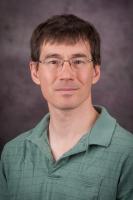
The study of neutrinos provides a unique window into the basic nature matter vs antimatter, as well as a unique way to observe the universe around us. Their low masses and incredibly long interaction lengths allow experiments that are impossible with any other particle. Neutrino observatories can measure the energy and abundance of sources of neutrinos as nearby as the earth beneath us and potentially as far away as supernovae in the early universe.
The advantages of the neutrinos' long interaction lengths come at a price: detectors for neutrinos must be enormously massive to detect even a tiny fraction of the neutrinos passing through them, and neutrino experiments require very intense sources. In past colloquia I have described using nuclear reactors and particle accelerators to produce neutrinos that are detected using light flashes in masses of water or liquid scintillator ranging from tons to tens of kilotons. In this colloquium, I will describe work over recent years on experiments using a new type of neutrino detector that measures charge produced by neutrino interactions in liquid argon.
These new detectors produce images of neutrino interactions that are practically "microscopic" compared to the light-based detectors. One such experiment is the 100-ton-scale "Micro" Booster Neutrino Experiment (MicroBooNE), operating since October of last year. Construction of a 1-kt-scale prototype will begin next year, a stepping stone towards the construction of the planned 40-kt-scale Deep Underground Neutrino Experiment (DUNE). I'll conclude by describing some of the physics discoveries DUNE aims to make.
